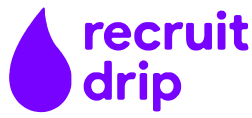Recruitment is a dynamic field that plays a crucial role in shaping the success and growth of organizations. In today's fast-paced and competitive business environment, attracting, selecting, and retaining top talent has become a strategic priority for companies across industries. As technology advances and societal norms evolve, the recruitment landscape has witnessed a significant transformation, giving rise to a diverse range of recruitment categories. In this blog post, we will delve into the various recruitment categories, examining their characteristics, advantages, and challenges, and explore how they are reshaping the way organizations approach talent acquisition.
-
Traditional Recruitment: Traditional recruitment methods have been the backbone of talent acquisition for decades. This category encompasses practices like job postings, resume screening, and in-person interviews. While still relevant today, traditional recruitment approaches face challenges in terms of efficiency, reach, and candidate experience. However, they continue to serve as a foundation for many organizations, particularly for roles where personal interaction and subjective assessment are vital.
-
Online Recruitment: The advent of the internet has revolutionized the recruitment landscape, leading to the emergence of online recruitment platforms and job portals. Online recruitment enables organizations to reach a wider pool of candidates, streamline the application process, and leverage data-driven tools for candidate screening and selection. This category includes platforms like LinkedIn, job boards, and applicant tracking systems (ATS), empowering recruiters to tap into a vast network of potential candidates.
-
Social Media Recruitment: Social media platforms have evolved into powerful tools for recruitment, giving rise to a distinct category of talent acquisition. Platforms such as Facebook, Twitter, and Instagram provide recruiters with access to a diverse range of candidates, enabling targeted job advertisements, candidate sourcing, and engagement through employer branding. Social media recruitment emphasizes building relationships, leveraging online communities, and tapping into passive job seekers.
-
Recruitment Marketing: Recruitment marketing focuses on applying marketing principles to attract and engage potential candidates. This category encompasses employer branding, content creation, and the use of digital marketing techniques to create a compelling employer value proposition. Recruitment marketing strategies aim to enhance the overall candidate experience, improve brand perception, and create a talent pipeline for future hiring needs.
-
Diversity and Inclusion Recruitment: With a growing emphasis on diversity and inclusion, organizations are actively seeking ways to ensure a more inclusive workforce. Diversity and inclusion recruitment strategies focus on attracting and hiring candidates from diverse backgrounds, including those from underrepresented communities. This category involves proactive sourcing, targeted outreach, inclusive job descriptions, and structured diversity programs to create a more inclusive and equitable work environment.
The recruitment landscape is evolving rapidly, driven by technological advancements, shifting demographics, and changing candidate expectations. Organizations must adapt to these changes and embrace a multi-faceted approach to talent acquisition. By exploring and leveraging various recruitment categories such as traditional methods, online platforms, social media, recruitment marketing, and diversity and inclusion strategies, organizations can increase their chances of attracting the right talent and fostering a diverse and high-performing workforce. Ultimately, understanding the nuances of each recruitment category empowers recruiters to navigate the modern hiring landscape effectively and secure the talent needed for their organizations' success.


